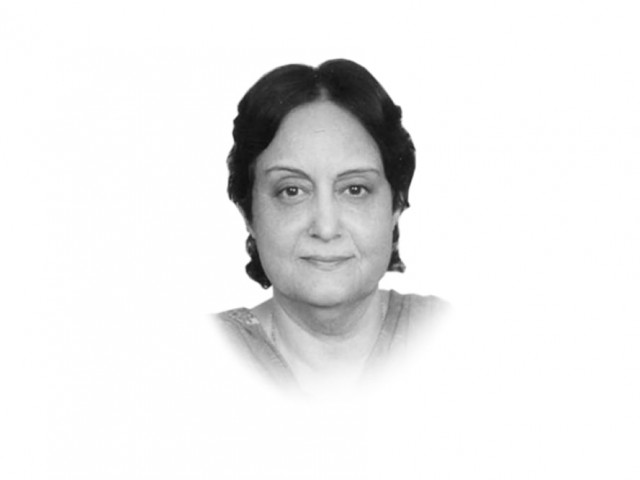The reclaiming of Iqbal’s ‘dream’
On Iqbal's death anniversary, one should ask if today’s Pakistan bears any resemblance to his ‘dream’?

The reclaiming of Iqbal’s ‘dream’
With the advent of colonialism, Muslims lost not only political power but also economic opportunity and cultural autonomy. Nowhere was this felt more acutely than in India where, though a minority in a Hindu-majority land, Muslims had had a powerful presence historically. In 1857-58, a section of the British Indian Army revolted against the British, who apportioned the greater share of the blame for this occurrence to Muslims and instituted openly discriminatory policies against them. This caused Muslim fortunes to reach their lowest ebb in the 1860s and 1870s — a fact which made many Muslims wary of associating Islam with politics and who restricted it to a practice of personal piety and ethics.
Deeply concerned about this mindset, Iqbal took pains to demonstrate to his fellow Muslims that Islam could not be limited in such a way. In his presidential address to the All-India Muslim League at Allahabad in 1930, he stated: “It cannot be denied that Islam, regarded as an ethical ideal plus a certain kind of polity — by which I mean a social structure regulated by a legal system and animated by a specific ethical ideal — has been the chief formative factor in the life history of the Muslims of India.” Iqbal reiterated the same idea in his presidential address at the annual session of the All-India Muslim Conference in Lahore in 1932: “Politics have their roots in the spiritual life of man. It is my belief that Islam is not a matter of private opinion. It is a society, or if you like, a civic church. It is because present-day political ideals, as they appear to be shaping themselves in India, may affect its original structure and character that I find myself interested in politics.”
What mattered supremely to Iqbal was “the culture of Islam” — an expression he used frequently to refer not to Muslim cultural practices but to the value-system based upon Islam’s highest ethical ideals. His dream of Pakistan was of a Muslim state in which the ethical principles of Islam and the political system which derived from them were organically related. In his view, a political system which lacked an ethical foundation would lead to ‘Changezi’, or tyranny of the worst kind.
During his lifetime, Iqbal’s great challenge was to explicate to his fellow Indian Muslims why Islam could not be limited to ethics. If he was living today, he would have faced a very different challenge. One needs to ponder what Iqbal would have said to the Pakistani leaders who are so preoccupied with politics that ethics means nothing to them.
Iqbal had pointed out insightfully, “Nations are born in the hearts of poets, they prosper and die in the hands of politicians.” The nation that was born in Iqbal’s heart has been all but crushed by most of Pakistan’s politicians. Today, being deceitful, dishonest, untruthful, unethical and conniving has become a fine art in Pakistan, where power-grabbing by means of Machiavellian intrigues and machinations is common. It is no wonder that Iqbal has been systematically eliminated from Pakistan’s educational curriculum and young Pakistanis have little, or no, knowledge of his message. The major reason for this abysmal reality is that Pakistan’s morally corrupt and spiritually bankrupt rulers fear that Iqbal’s iconoclastic voice, which rejected every form of totalitarianism, injustice and untruth, is still powerful enough to shatter their crystal palaces. It had to be silenced or relegated to obscurity if their nefarious purposes were to be achieved.
Iqbal’s vision and voice, which changed the destiny of Indian Muslims, is what is needed today to liberate Pakistanis from the chains that bind their bodies, hearts, minds and souls. Young Pakistanis must reclaim Iqbal’s dream and undertake the responsibility for actualising it.
Published in The Express Tribune, April 21st, 2011.















COMMENTS
Comments are moderated and generally will be posted if they are on-topic and not abusive.
For more information, please see our Comments FAQ